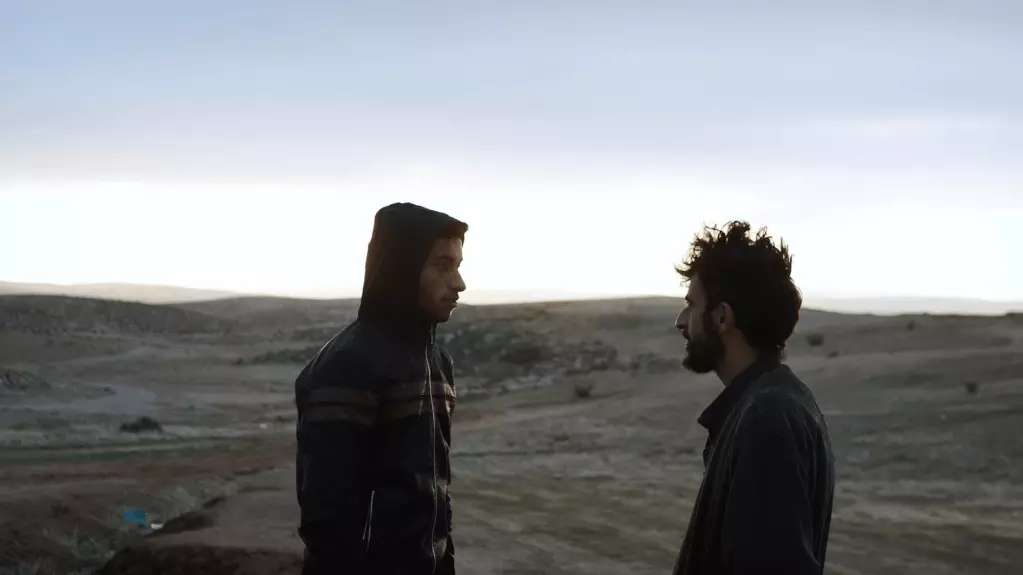The film industry continues to address pressing social and political issues, as evidenced by this week’s notable releases. Fresh voices in documentary filmmaking are emerging, alongside compelling narratives in fictional cinema that mirror contemporary societal dilemmas. This article examines the intersection of artistry, activism, and audience engagement in the current film landscape, focusing on the recent releases at New York’s Film Forum and other venues.
One of the most remarkable entries this week is *No Other Land*, a documentary that has garnered critical acclaim including an Academy Award nomination for Best Documentary Feature. Created by a collective of Palestinian and Israeli filmmakers—Basel Adra, Hamdan Ballal, Yuval Abraham, and Rachel Szor—it offers a nuanced exploration of long-standing conflicts in the region, particularly concerning the expulsion of Palestinian villages in Masafer Yatta. This film isn’t merely a retelling of events; rather, it is a lens through which the audience can examine the root causes of enmity and suffering.
The documentary’s significance is amplified by the backdrop of the ongoing conflict between Israel and Hamas, which had reached a temporary ceasefire during its release. As such, *No Other Land* serves not just as an archival document of historical truths but as a timely reflection of the complexities surrounding human rights and displacement. The filmmakers masterfully intertwine personal narratives with broader socio-political commentary, inviting viewers to forge a deeper emotional connection with the subjects onscreen. In doing so, the documentary stands as a powerful testament to the role of film as a catalyst for understanding and dialogue.
*No Other Land* skillfully constructs a narrative around the friendship between two journalists—Basel Adra, a Palestinian restricted by borders, and Yuval Abraham, an Israeli with greater mobility. Their partnership symbolizes a glimmer of hope within a fractured community, showcasing the power of collaboration and empathy in the face of adversity. This is not merely a tale of conflict but also one of personal discovery and overcoming divisions, making it accessible and relatable to audiences outside the region.
The documentary sheds light on the human spirit’s resilience as residents of Masafer Yatta seek to reclaim their land and dignity amid systemic oppression. The filmmakers’ choice to document these stories over a span of five years deepens the viewer’s understanding of the persistent struggles faced by marginalized communities, emphasizing that the fight for justice is often a prolonged and arduous process.
Besides the impactful documentaries, the cinematic releases this week also include thought-provoking fictional narratives that explore modern themes such as love, identity, and technology. A noteworthy entry is *Love Me*, a feature film directed by Sam and Andy Zuchero, which portrays a cosmic love story set in a post-human world where connections transcend time. Featuring Kristen Stewart and Steven Yeun, the film examines what it means to be alive and in love, addressing existential queries that resonate in contemporary society.
The imaginative approach to storytelling in *Love Me*, utilizing various filmmaking techniques including practical animatronics and animation, challenges audiences to reconsider their perceptions of identity and existence. By exploring the duality of connection in a disconnected world, the film adds layers to our understanding of relationship dynamics in the age of technology.
The blending of documentary and fictional elements isn’t restricted to *No Other Land* and *Love Me*. Also opening in theaters is *This Woman*, a docufiction that reflects on personal and societal struggles during a tumultuous time. Under the direction of feminist artist Alan Zhang, the film follows the life of a woman navigating the pitfalls of an unfulfilling marriage amidst the pandemic’s unfolding chaos. This narrative, much like *No Other Land*, pivots on themes of societal expectation and personal agency, providing audiences with a lens to critique prevailing social norms.
Furthermore, the film’s backing by Alula Film—a nonprofit focused on narrating the stories of Chinese-speaking communities—adds a critical layer of authenticity and representation to the cinematic discourse. Such productions emphasize the importance of amplifying diverse voices and perspectives in a global landscape often dominated by dominant narratives.
As these films debut and reach wider audiences, they contribute to an evolving conversation about the roles of art and activism. Cinema, both documentary and narrative, has the power to illuminate complexities, provoke thought, and foster empathy. In exploring the persistent issues of conflict, identity, and social justice, filmmakers of this generation are not just documenting history—they are shaping it, challenging viewers to reflect on their own societal roles and the paths toward a more just future.

